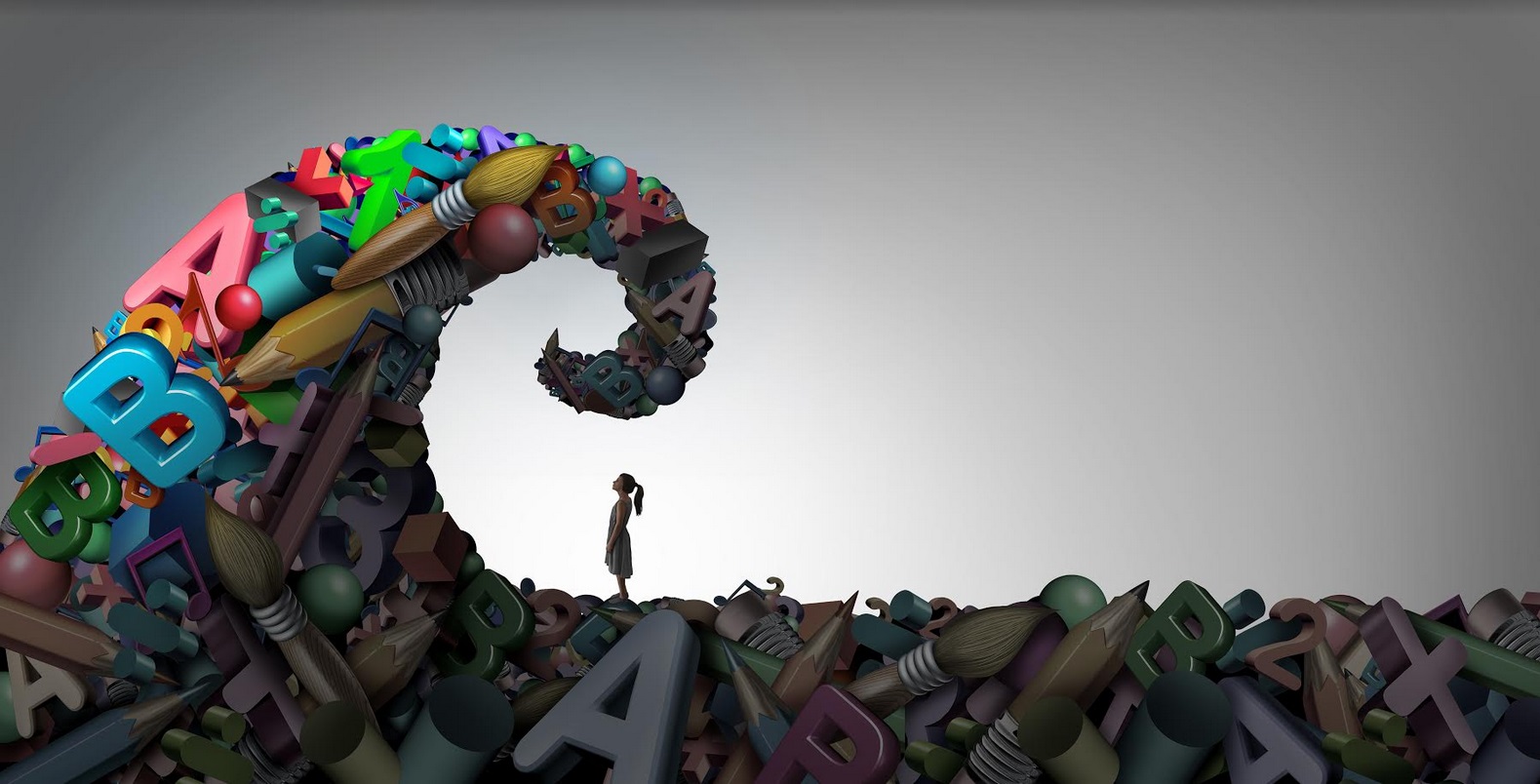Seven dyslexic superpowers

“With reading difficulties can come other cognitive strengths.” So says Matthew H. Schneps, a professor at Massachusetts Institute of Technology (MIT) and astrophysicist – and he should know because he’s also dyslexic.
With so much focus on reading and writing at school, it’s easy to feel that being dyslexic is a hindrance rather than an asset. In fact, many dyslexics have been found to have seven key skills that give them the edge in many careers.
- Seeing the bigger picture
Dyslexics often see a situation holistically – they CAN see the woods for the trees – and this enables them to focus on what is important, without getting lost in the detail.

- Recognising complex patterns in images
People with dyslexia are excellent at identifying and remembering complex images. They are able to connect separate components to create complex systems and to identify similarities that others may not see. Dyslexics can also simultaneously process multiple thoughts. These are helpful tools for careers in science and maths. Interestingly, many astrophysicists are dyslexic!
“I recognized that I had dyslexia and then I realized I had this gift for imaging. I live in a world of patterns and images, and I see things that no one else sees. Because of dyslexia, I can see these patterns.”
Beryl Benacerraf, radiologist.
- Spatial awareness
Enhanced spatial awareness – the ability to manipulate 3D shapes in your mind – is often associated with dyslexia. This is an incredible skill to have and is particularly useful for careers in architecture, fashion design, graphic design, engineering, art, mathematics, physics, computer programming, surgery and dentistry.
“I performed poorly at school – when I attended, that is – and was perceived as stupid because of my dyslexia. I still have trouble reading. I have to concentrate very hard at going left to right, left to right, otherwise my eye just wanders to the bottom of the page.”
Tommy Hilfiger, fashion designer
- Thinking in pictures
Research has shown that people with dyslexia tend to think in pictures rather than words and are highly skilled at remembering pictures they have seen.
Auguste Rodin, the famous French sculptor, was unable to read until he was 14, but he could go to a museum, look a painting and paint it from memory at home.
- Creativity
The link between dyslexia and creativity has long been held. In fact, 84% of dyslexics have above average imaginative skills. This talent is useful in careers such as acting, art, business, invention, composing, writing, design…. The list is endless! Many famous artists and inventors were dyslexic. Two examples shine through:
Pablo Picasso was described as “having difficulties differentiating the orientation of letters”.
Leonardo Da Vinci was an inventor, painter and sculptor with an incredible imagination. His spelling was described as “erratic and strange” and he wrote in mirror writing!
- Thinking outside the box – problem-solving
Dyslexics are fast problem solvers and can think laterally, providing unorthodox methods for solving problems. This skill often provides leaps of insight. This enables excellent troubleshooting. Dyslexia is frequently associated with having a natural curiosity to discover or understand new things. These skills are helpful in almost every career – from big business to research science!
“This is an intuitive approach to problem-solving that can seem like daydreaming. Staring out of the window is how they work, letting their brain slide into neutral and ease itself around a problem to let connections assemble.”
“I have no special talents, I am only passionately curious”
Albert Einstein
- Entrepreneurship
A third of American entrepreneurs have dyslexia! Put together, the superpowers that we have listed above tick all the boxes for a successful entrepreneur: strategic thinking, creativity and problem-solving – a winning combination. Dyslexics also tend to be excellent verbal communicators, which is an essential skill when running your own business.
“If anyone ever puts you down for having dyslexia, don’t believe them. Being dyslexic can actually be a big advantage, and it has certainly helped me. Don’t let it hold you back – use it in your favour.”
Sir Richard Branson, Virgin.com
Before we start to wish that we all had dyslexia, it does of course, present many challenges and difficulties. And it’s important that we recognise those challenges. For example, although the effects are varied, dyslexic children read so slowly that it would take them up around six months to read the same number of words that other children might read in a day. That said, this doesn’t mean that people with dyslexia are necessarily at a disadvantage, as Matthew H. Schneps reminds us:
“Whatever the mechanism, one thing is clear: dyslexia is associated with differences in visual abilities, and these differences can be an advantage in many circumstances, such as those that occur in science, technology, engineering and mathematics.”
Read more about this: Dyslexia daily: The advantages of being dyslexic Nessy: 9 strengths of dyslexia Scientific American: The advantages of dyslexia Made by dyslexia: Dyslexic thinking skills explained


I’m very dislexic and my mind is exploding with scientific artistic mechanical psychology just to say the few that I excel dramatically in and I have no outlet or a misunderstood by most people my parents doesn’t fit though I believe type so I’m not taking serious by most but I’m highly intelligent intelligent looking for an outlet
I never knew what was wrong with me until I was grown. I was placed in the slow learners class in the 1960s. I failed in school and my parents and friends never understood me nor did I myself!
I was bullied and abused by other children. Thus also developed post traumatic stress disorder.
I educated myself after I was grown by taking continuing education class to get access to the library at the community college.
I wound up working in research and development projects most of my life in aerospace, chemistry, electronics, and science.
I wish people knew back in 1955 about dyslexia my life may have been much different!!
Your story is very similar to mine. I’m glad you found your way through. Some of those scars never leave, though, do they?
Absolutely! I have a masters degree in nursing but am realizing why I had to work much harder than others and was also made fun of for my poor reading abilities in grade school during the 1960s
I thank I have it
I was putting special ed class but I land up taking care of the other students until 6th grade when the Iowa test came out I was discovered to be more far advanced than the average student. I became a nurse and I was always the last one finished charting and getting out but I was a superior nurse able to identify my patient’s problems to the point where other nurses came to me to collaborate. I still couldn’t progress well in the regular class I dropped out of high school but went to libraries and museums and was able to take the GED with the first try and enter college with college entrance test. that was discovered to be dyslexic around 9th grade and Visually Impaired legally blind in one eye I always had problems reading but I was so nearsighted reading was not a problem if I held the book a certain way I learned to compensate on a lot of things memorized what letters I had trouble with and then when computers came out that solved a lot of problems for me being dyslexic meant I had to learn how to compensate which I think learning to compensate in a lot of areas helped me taught myself how to learn without realizing that I was doing that until later on in . I discovered my daughter was dyslexic when she was in second grade. verbally she would get a hundred in spelling test but would come home failing the test. I discovered she was writing her P’s and b and d’s . Backwards or upside down and couldn’t get into reading easily.
I found out I had my form of dyslexia by chance as I had developed work arounds through life that I thought were just “normal” I could read fine but as an example, to take a verbal or written description of how to tie a specific rope knot was mental torture and like a tornado inside my head. In driving my car with navigation directions, I would hear the direction to make a right or left turn direction and then “hear” again it to do the opposite direction. I could both excel and fail all within the same project. I ran a successful company with over 100 people and the broad strokes and plans were easy as can be with success, but to detail the daily tasks or goals for my subordinates would leave me feeling in a total state of confusion. Finding out about the condition was relief in itself and by chance, I encountered a treatment called LENS (Low Energy Neurofeedback System ) at my medical doctor’s office that I chose to do after reading up on it for multiple reasons (concussions and nothing to do with Dyslexia ). Not suggesting it as as a cure, but I got a lot of relief in various ways including diminishing the anxiety and PTSD related to the dyslexic difficulties I had experienced in life. So now I have some of those abilities related to dyslexia minus the anxiety factor and if the anxiety manifests, I know what it is now. Pretty cool.